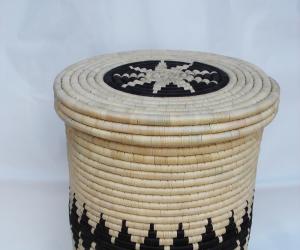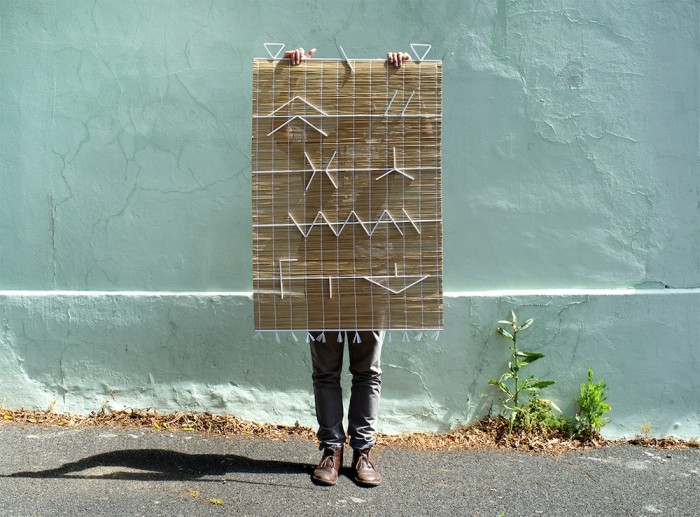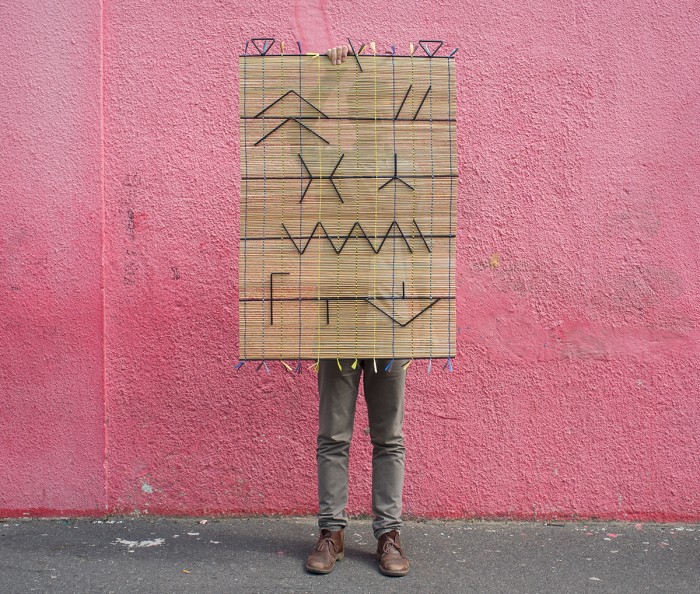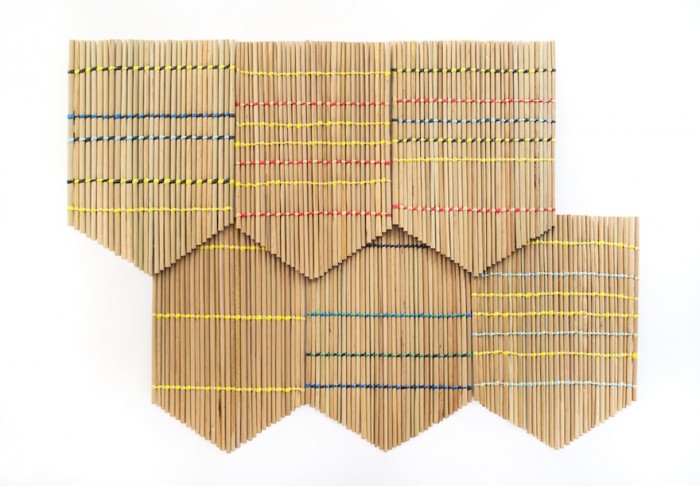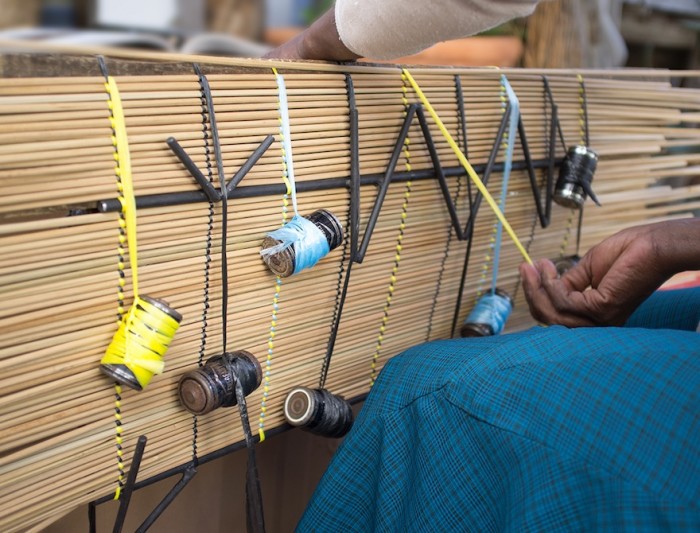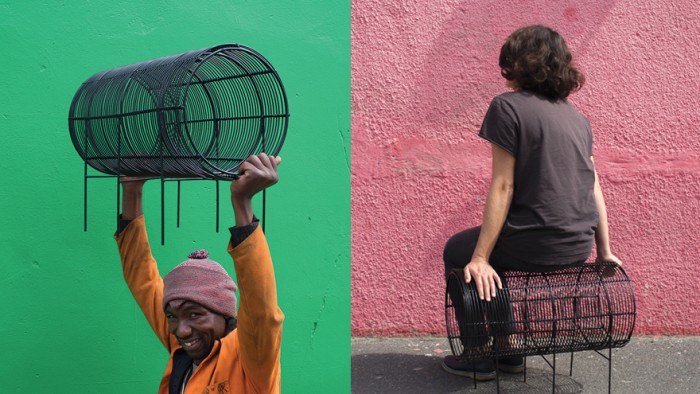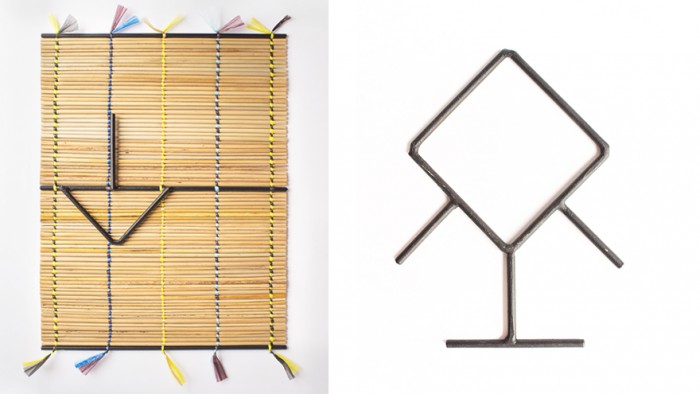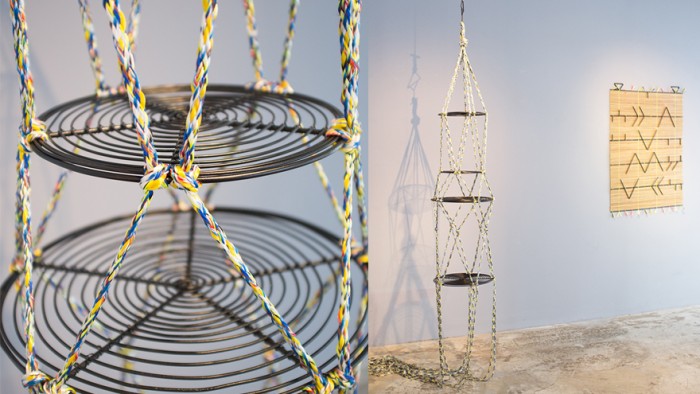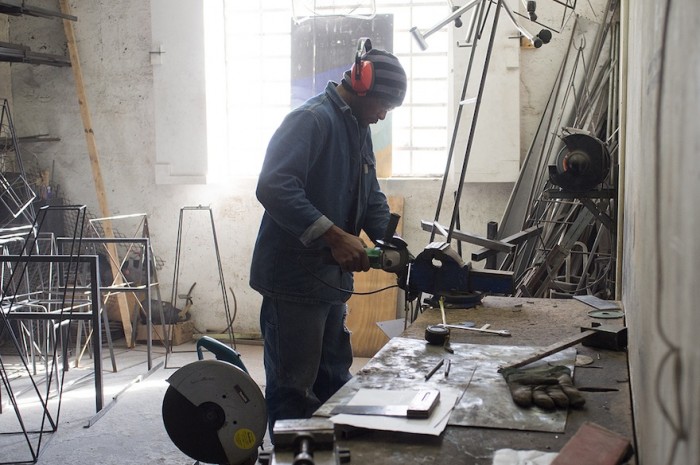Posted 21 Jan 15
By Kelly Berman
African Design • Craft • Product Design
Creative Work / Lookbook
Comments
Last year, Franco-Austrian design studio Celia-Hannes collaborated with local craftsmen from Cape Town in a skills exchange programme that resulted in the Frugal Collection. It's a collection of small household items that marry traditional South African crafts with contemporary design.
The Frugal Collection comprises a metal wire stool, a rope and steel hanging system, grass mat “wall tiles” and grass “wall mats” that incorporate steel hanging elements – the latter two produced with Design Afrika. It was conceptualised to work in the contexts of both the northern and southern hemispheres.
Hannes Schreckensberger and Célia Picard spent a six-week residency in Cape Town during the month of August as part of World Design Capital 2014. Funded by the Creative Region Linz & Upper Austria, they collaborated with local craftsmen from the townships of Delft and Dunoon, where resources are limited and many make their living from their handicraft. “We learned a lot of new craft techniques and how to work with materials that we don’t use in Europe,” say Schreckensberger and Picard. "The exchange was to show the craftsmen new contemporary applications for their techniques as well as the possibility to combine different materials in order to create ambitious design objects. It was also a more personal way of working and creating sensitively made objects."
With the series of wall mats, Studio Celia-Hannes sought new uses for the woven grass mats that are traditionally used to sleep or sit on. The mats combine woven grass with steel hanging elements inspired by Xhosa patterns. The steel elements can be used to hang clothes or store lightweight objects in the kitchen, for example. Schreckensberger and Picard looked for ways to maintain local craft traditions but also give them new life through new types of functional products appropriate for the communities in which they were produced.
The metal inlays for the wall mats were manufactured by Iddi Musa, a locksmith from Delft township. The long-term plan is to market the objects in Europe and South Africa. “We have already had some sales leads for the stool as well as for the wall mat,” say Schreckensberger and Picard. “At the moment we are looking for resellers in Europe and South Africa.”
A macramé-like hanging system was made of steel and plastic rope. The Frugal Collection Cape Town was shown at Gallery Harald Bichler_Rauminhalt as part of Vienna Design Week 2014 and in the exhibition Design Discourse: Austria - South Africa in Cape Town. The exhibition travels to Vienna for an exhibition at designforum Wien from 30 January – 8 February followed by an exhibition at Great Design Gallery in Paris later that month.
"South Africa has a very dynamic design and crafts scene," say the designers. "There is great potential to use simple craft techniques to create and develop contemporary design objects." Celia-Hannes’ work lies somewhere between architecture, design and art. They see cities as “vast public-domain databases” and use them as resources for their projects. Since 2012 the two designers have taken part in residencies in Paris, Strasbourg, Chongqing and New York.

